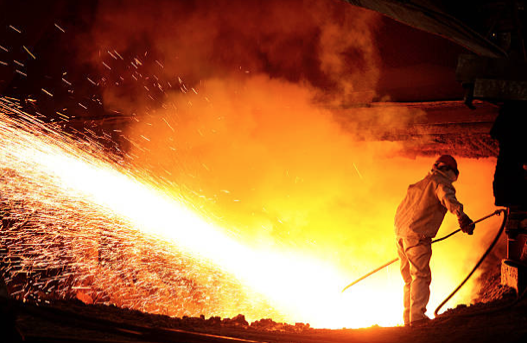What essential industries can teach the world about working through the crisis
By Maurizio Sala, entrepreneur, president of Amafond
As the president of Amafond, an Italian foundry supplier’s association which involves approximately 100 manufacturers of essential equipment and auxiliary products for the industry, I am proud to represent Italy’s ferrous and non-ferrous metal foundries.
Our industry employs no fewer than 6500 workers and our global turnover is more than 1.5 billion Euros, 75% of which is accounted for by the export market. I am also directly involved with the industry myself as the owner of Foundry Ecocer, a leading name in the production and sale of an expansive range of materials required by smelters, cast houses, refineries and a variety of different types of foundries.
I believe that the scope of the global crisis induced by Covid-19 means that most companies, certainly many in Europe and the U.S., will be dealing with the fallout, from a financial or market standpoint, for many years to come. However, although many industries—such as the automotive sector—were already in crisis before the pandemic, we now have to look for the best way forward in the post-covid business environment.
My opinion is that a courageous and well-structured plan devised by a united Europe will be able to restart our combined economic system and aid our industries in evaluating and innovating new solutions to reinvigorate our economy.
Clearly, the immediate consequences of this global pandemic will be, and are currently, felt by everyone involved in the international production and supply chain: owners, managers, administrative staff and workers have all come under extreme stress and challenges.
What is necessary now is a united and shared effort on the part of each individual, making the most of their specialized skill sets and capabilities. All projects and programs launched in this new environment must be clearly set-out, the goals well-defined, and also shared throughout the corporate structure. A united and motivated team can lay the foundation for an effective relaunch.
To give you all a clearer picture let me cite an example: the sales facet of businesses, always fundamental, must establish new objectives and a new vision.
This will entail the evaluation of the nearest markets—both domestic and European—focusing on those that may previously have been neglected while companies focused on markets outside of Europe, which have been more profitable in the past.
While these foreign markets may still be viable sources of income, sales will now need to be more targeted. To avoid doing business in the old ‘hit and run’ style, European companies will not only need to learn how to effectively explain the customs and traditions of the products they are selling, but also to become more aware of those aspects of the markets they are selling into.
This will involve a shift in the old mindset and more intensive interaction with these foreign markets to ensure that the economic and information flow becomes healthy and sustainable for all involved.

Italy, Milan, Corso Venezia street during COVID-19 outbreak — Photograph: Westend61
Let me share with you a brief sketch of the steps currently being taken by my company to cope and move forward in this difficult time.
Our business is of strategic importance for our country.
Thankfully, because our activities fall into that category, we’ve been given the opportunity to maintain continuity in our daily business. We were closely following what was happening in China through the media and we were able to plan quickly and take effective action.
Before a formal, national protocol was issued, we had the foresight to organize our activities in a way that safeguards and maintains the health of our employees in these trying circumstances.
In addition to adopting individual protection measures for our staff, we swiftly revolutionized many other aspects of the way we work.
We divided the working day into two shifts of eight hours each. Teams were also equally distributed in terms of the hours they worked so that it was possible to maintain appropriate distances and other safety measures. Our office administration involves keeping a single staff member in the office (per shift) while the others work remotely.
Everyone was kept abreast of the new rules and protocols.
However, rather than just ‘pinning a memo to the company bulletin board’, each and every employee was thoroughly briefed about the dos and don’ts of this new way of working, which ensured smooth operations.
We also introduced a simple and effective ozone air-purification system for many environments including our offices, laboratories, and small production areas, which I feel should actually have been considered earlier.
Thanks to our readiness and quick action, and the updating of our working methods, all of our employees are behaving very responsibly and, just as important, they feel secure. I think we have managed to establish a very effective system.
Of course for this to continue, financial or economic interventions at the government level are needed just as much as a motivated staff. Above all we feel no shortcuts should be allowed in order to emerge from the current crisis both stronger and better prepared for the future.
